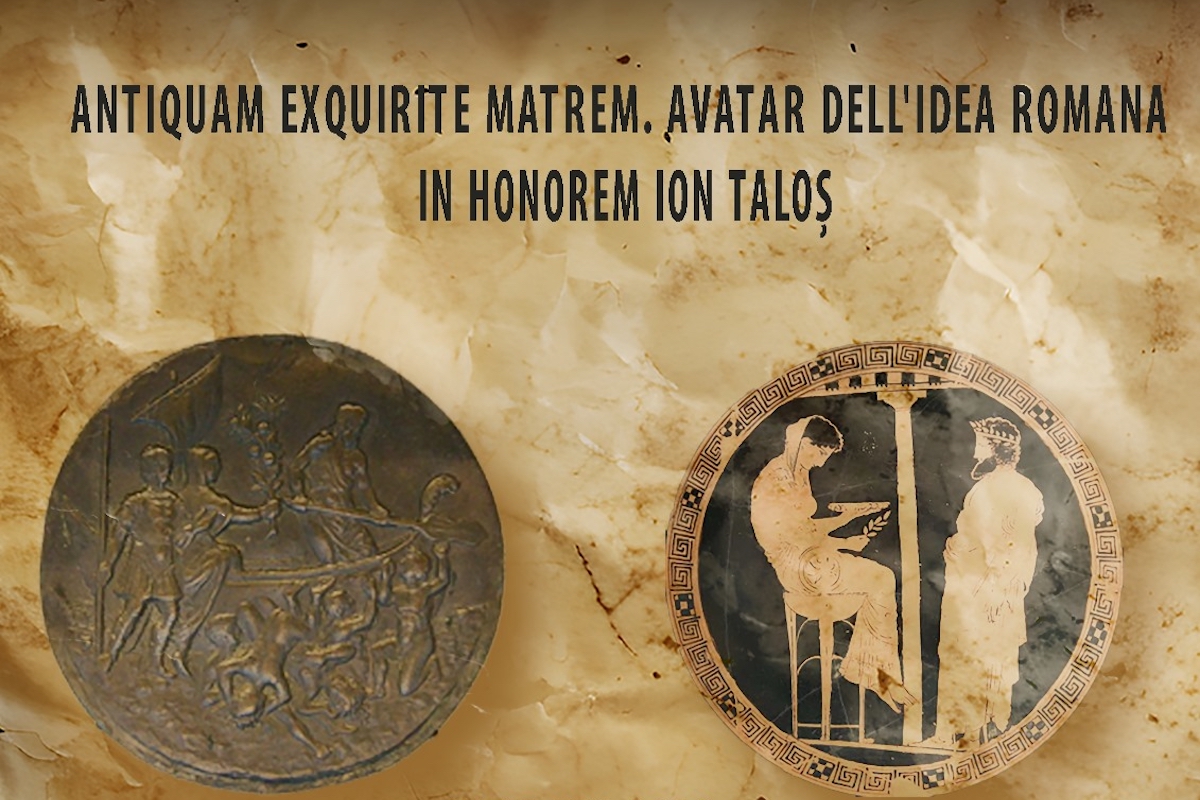CONFERENCE “ANTIQUAM EXQUIRITE MATREM. AVATAR OF THE ROMAN IDEA”
In honor of Ion Taloș
November 14–15, 2024
Faculty of Letters, Babeș-Bolyai University
31 Horea Street (Popovici Hall)
Cluj-Napoca, Romania
Babeș-Bolyai University (Department of Classical Languages and Literatures)
University of Genoa (Department of Modern Languages and Cultures)
Romanian Academy, Cluj-Napoca branch (Institute of Folklore Archives of the Romanian Academy)
Conference co-organized by ORMA and integrated into the Creative Europe Tramontana project, co-financed by the European Union
A conference built around variations of the Roman idea in pre-modernity and modernity, focusing on the search for origins and the construction of European identities, both from the point of view of the genealogical paradigm (the case of the Romance peoples) and from the religious-confessional point of view (the case of Catholic countries). We are undeniably confronted with the intersection of two distinct paradigms: that of the origin/origins (glossogenesis, ethnogenesis, genesis of cultures) and that of the beginning/beginnings in a purely chronological perspective (the processes of morphogenesis). In this sense, we have chosen as the title of the conference a verse from Virgil (“Antiquam exquirite matrem” – Aeneid 3.96), which refers to the search (the quest) for mother earth, the place of origin of Aeneas’ Trojans. The subtitle “Avatar of the Roman Idea” outlines the historical and cultural variation of the Roman idea in certain European cultures (in this case Italian and Romanian).
The conference is divided into two sections: a historical section (The Roman idea in Romanian culture. Genealogy and stages), exploring the different cycles of Roman genealogy in Romanian culture, namely: the Italian Renaissance cycle; the Tridentine-Polish cycle in Moldavia and the Romanian Greek Catholic cycle in Transylvania; the Saxon Lutheran cycle in Transylvania; the French Roman/Neo-Latin cycle in the Romanian Principalities of the 19th century) and a more concrete and comparative approach (Romanian and Italian variations of the Roman idea: the Roman idea in ethnology, literature, historiography).
This year, the study day is dedicated to Professor Ion Taloș, a great Romanian folklorist and Romanist, professor emeritus at the University of Köln and researcher at the Institute of Folklore Archives of the Romanian Academy, Cluj-Napoca, on the occasion of his milestone birthday (90 years).
Photos by Ileana Benga and Ela Cosma.
